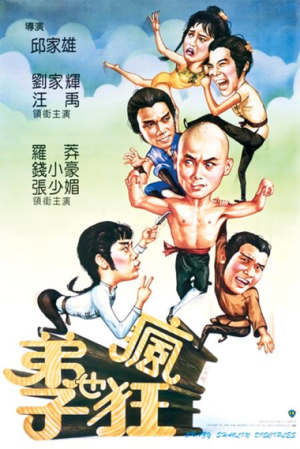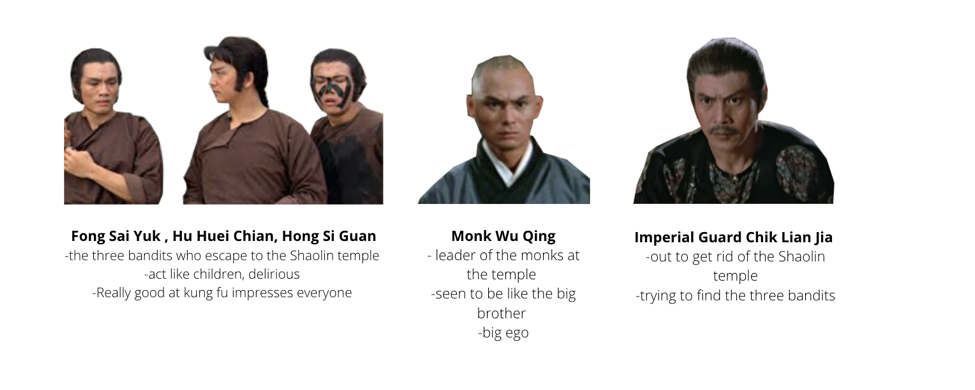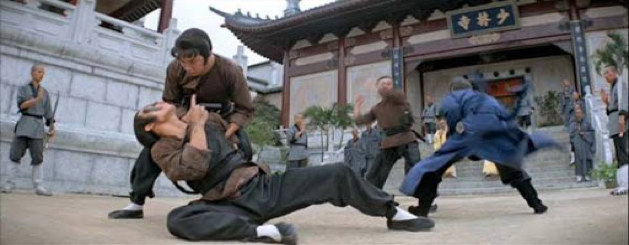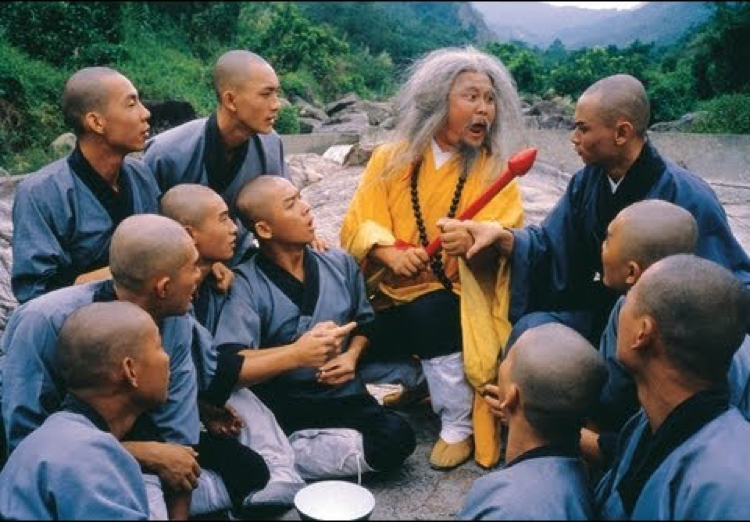Crazy Shaolin Disciples (弟子也瘋狂) (1985)
Towards the end of the ’80s, the Shaw Brother’s Studio was competing with young, up and coming film studios such as Golden Harvest. With the film Crazy Shaolin Disciples (弟子也瘋狂) (1985), it is evident the studio reached a point where they could not produce high-quality content compared to the past. Crazy Shaolin Disciples’ plot is an example of the steep decline for the studio’s Martial Art genre as it focuses on three martial artists who take refuge at the Shaolin Temple to hide from gangsters. Eventually, the studio turned away from the high budget films and concentrate on its TV market.

Image Source: Celestial Pictures Limited
A Breakdown of the Characters

Who is Yau Ka Hung?
Yau Ka Hung had a brief career in the film industry. Born and raised in Hong Kong, he joined Television Broadcast Limited (TVB) in the 1970s as part of the production crew. He soon rose to the title of director and worked on the Martial Art series, The Twins (絕代雙驕) (1979). Yau also produced a plethora of tv dramas such as The Young Heroes of Shaolin (英雄出少年) (1981), and The Restless Trio (花艇小英雄) (1982), The Radio Tycoon (播音人) (1982) and many others. By the mid-80s, he then entered the film industry and directed the Martial Art comedy, Crazy Shaolin Disciples (弟子也瘋狂) (1985). Unfortunately, Yau only directed one film for the Shaw Brother’s Studio and moved onto other projects with TVB’s Jade Movie Production. During his time with Jade, Yau worked with household names such as Tony Leung Chiu-Wai, Anita Mui, Margie Tsang Wah-Sin, Jacky Cheung, etc. Although his work within the film industry was limited, Yau was well known for his ability to recognize talent and promote young, local stars to gain recognition for their acting skills.
Why this film was not well-received
After watching this film, it is evident it lacks the flair and panache of previous Martial Art films. It is unfair to compare Yau to legendary film directors such as King Hu and Chang Cheh, who had more experience within the film industry. However, this film reflects a more significant issue, which is the decline of production value within the film’s genre. Yau follows the conventions of previous Martial Art films, such as taking inspiration from Beijing operas and attempting to follow its action choreography. However, for a Martial Art film, it does not deliver and live up to expectations. The humor and comedic traits also fall flat in this film. Since, Wong Yu, the actor that plays Fong Sai Yuk, was not a trained a fighter and results in Yau using doubles or filming scenes where the actors are thrown around.

Image Source: Celestial Pictures Limited
A common trend amongst Hong Kong Martial Art films was the use of humor to lighten the tone of the film. However, the jokes and childish banter between the characters is more so embarrassing to watch and leaves viewers cringing. One cannot deny there is some experimentation within the film, especially during the fighting scenes. Yau uses slow-motion shots to make the simple, underwhelming fighting scenes feel like a blockbuster, dramatic shot.

Image Source: Celestial Pictures Limited
Concluding Thoughts on Hong Kong’s Martial Art Films
It is challenging to find ways to summarize Hong Kong’s Martial Art genre over the span of two decades. However, if I had to use one word to define the genre, it would be experimentation. From the genre blossoming in the ‘60s to its decline in the ‘80s and ‘90s, one cannot help but admire the great lengths directors and film companies went to produce and challenge the notion of films within the genre. From headling female actresses as legendary warriors, intertwining tradition with modernity, and demonstrating innovative ways of filming, it brings a sense of pride to Hong Kong.
Although this program only featured nine films from the ‘60s-’80s, there are hundreds of films that are worth exploring. With easier access to films nowadays, viewers can visit sites such as ‘Hong Kong Movie Database,’ ‘The Hong Kong Film Archive,’ ‘Celestial Pictures,’ and many more. Hong Kong’s Martial Art genre has made meaningful contributions to the local and international film industry and will continue to have a lasting influence.
By Ariana Heffner
Film footage supplied by Celestial Pictures Limited / 電影片段由天映娛樂有限公司提供
